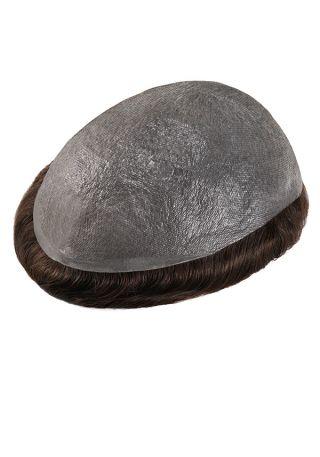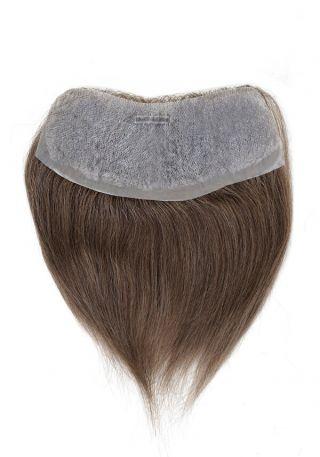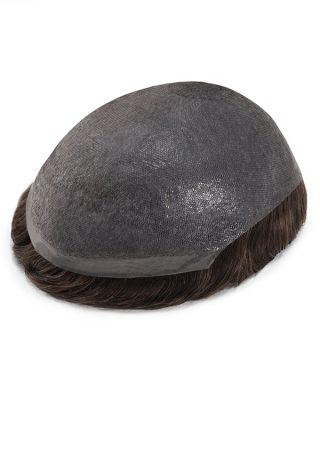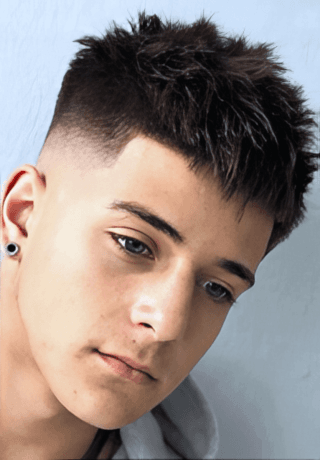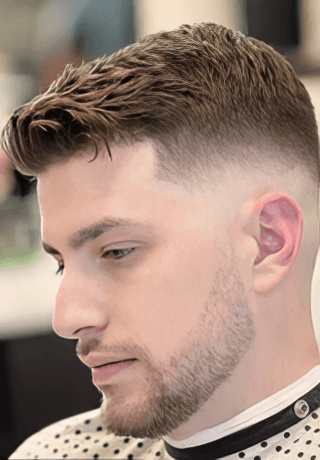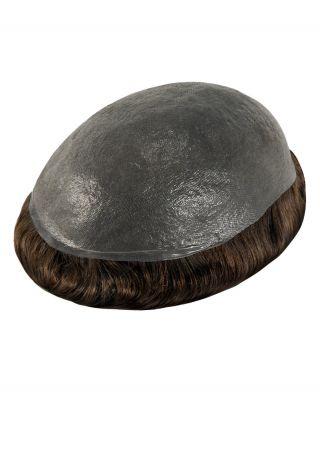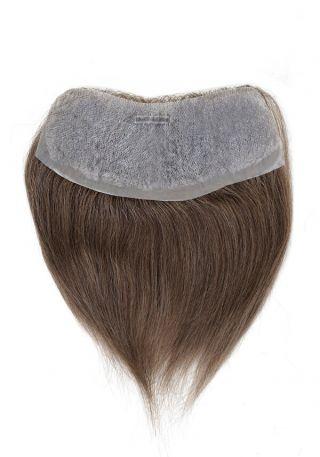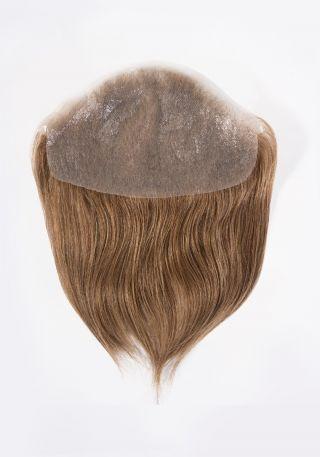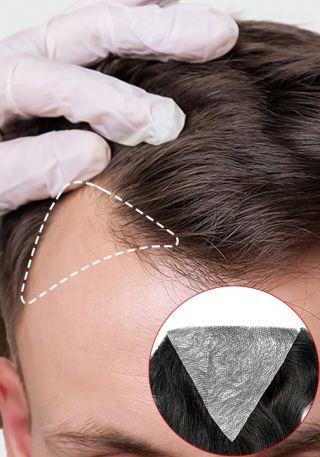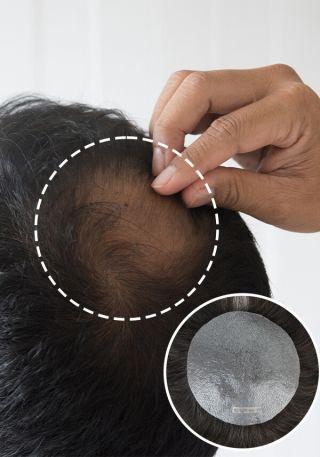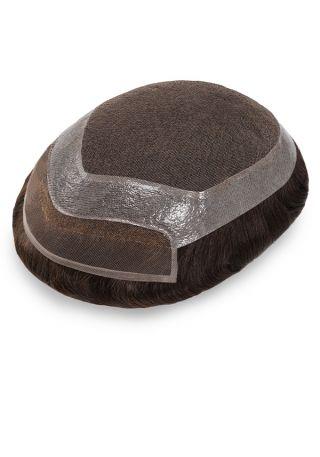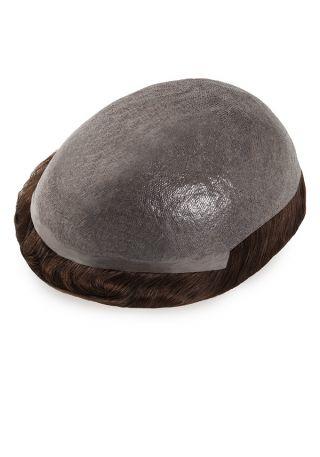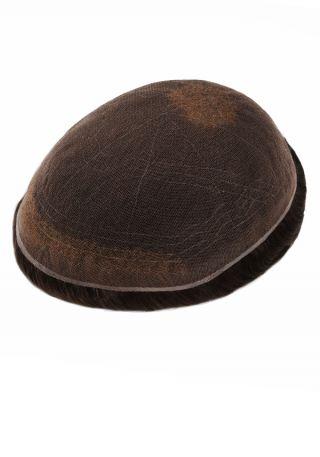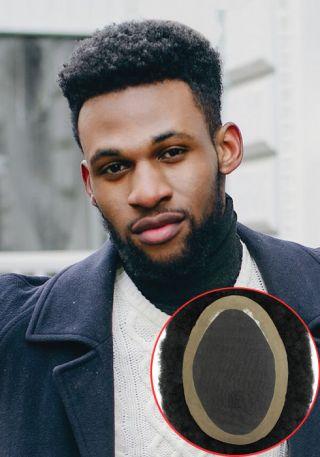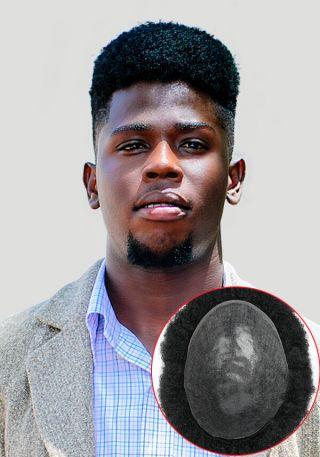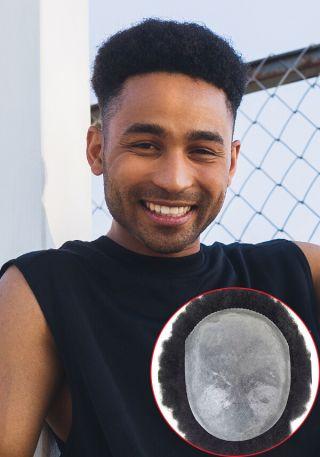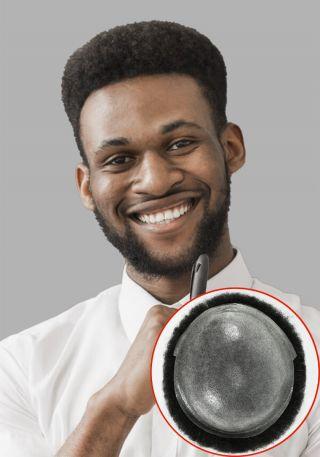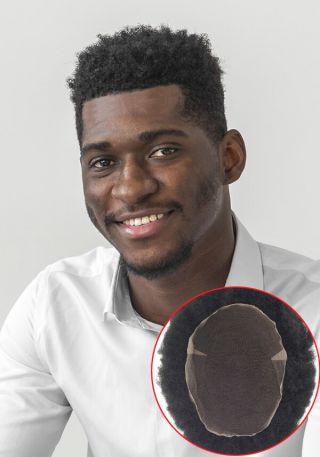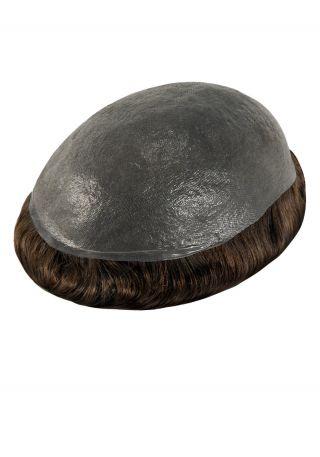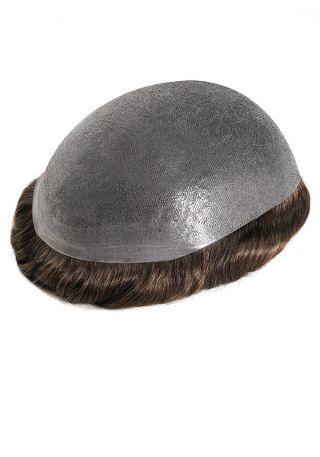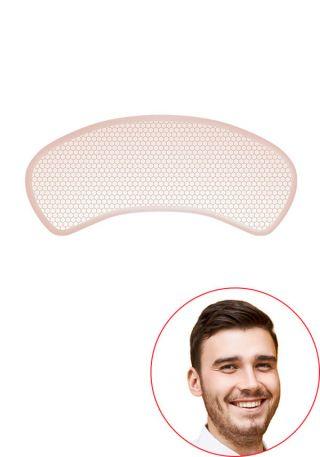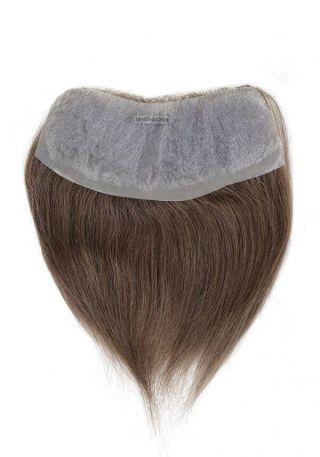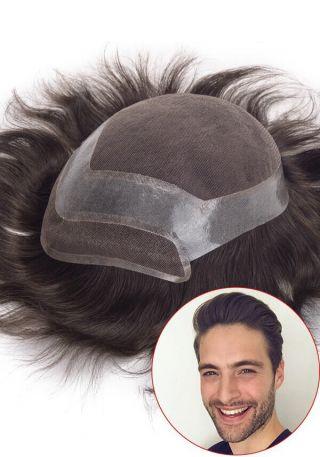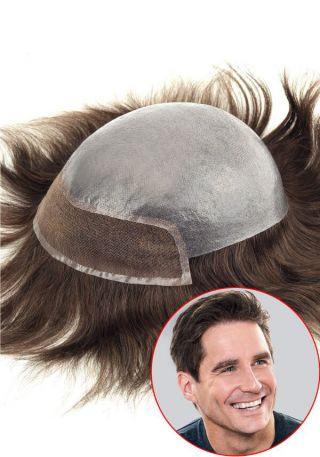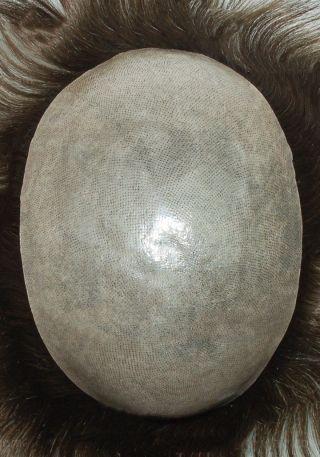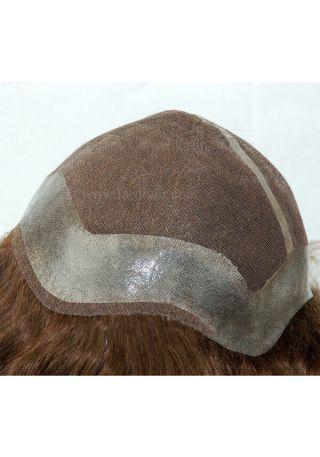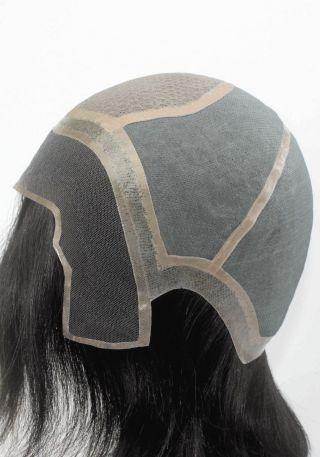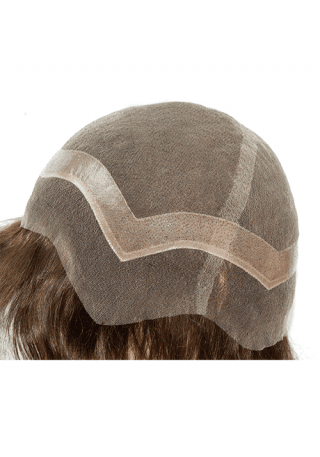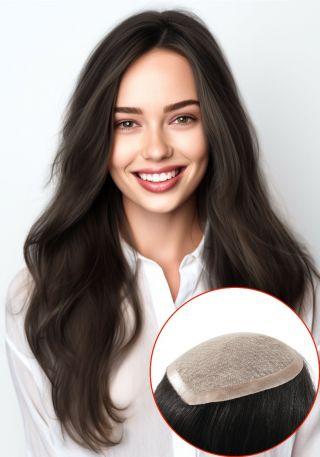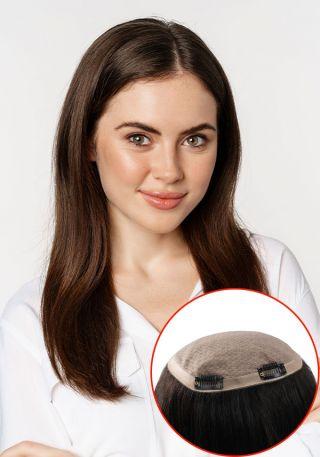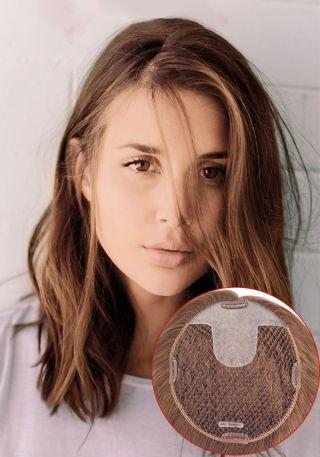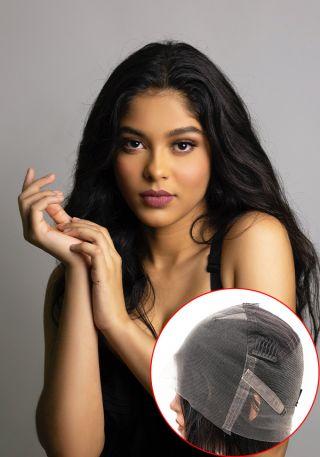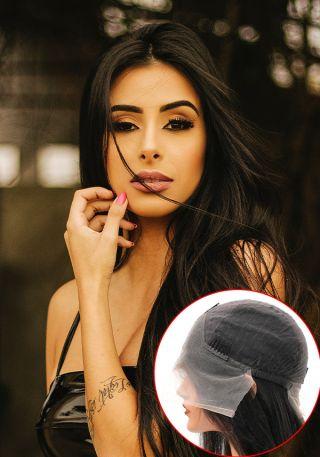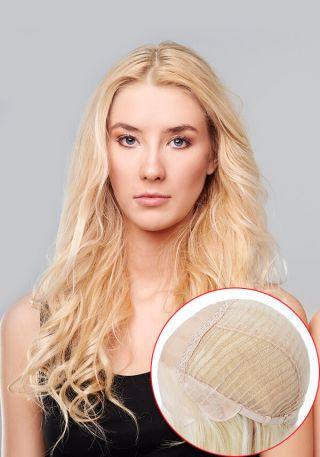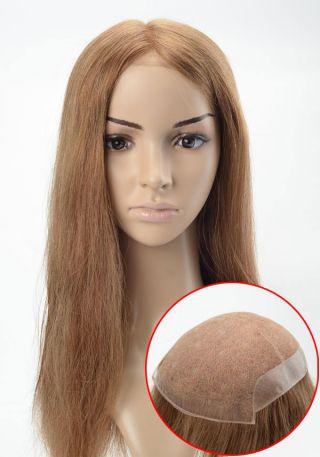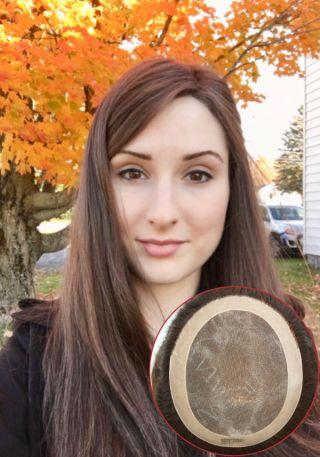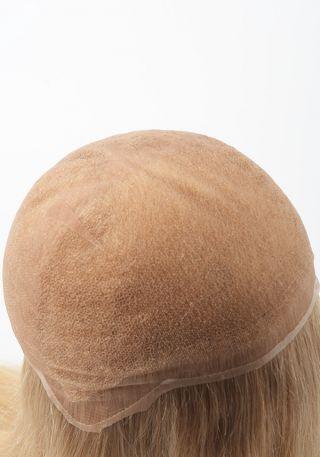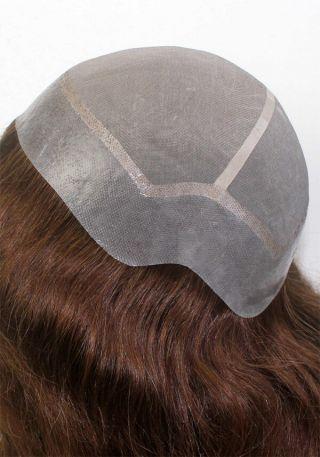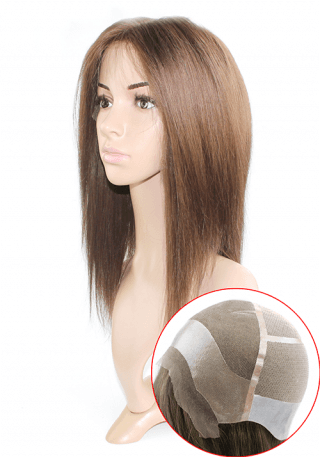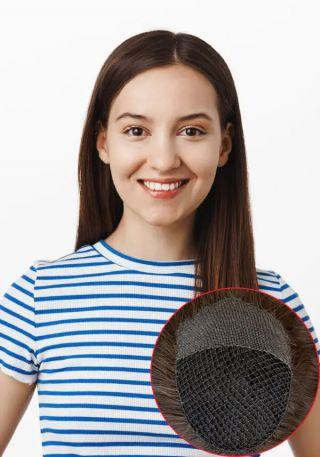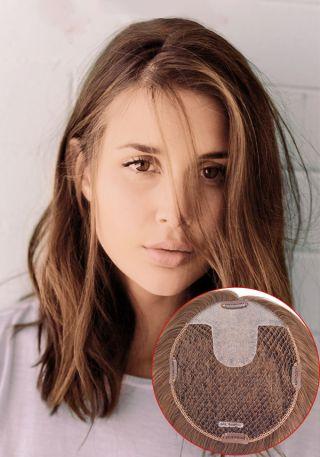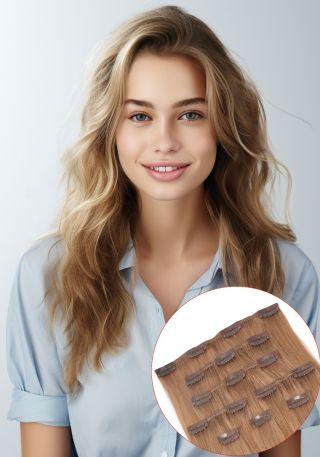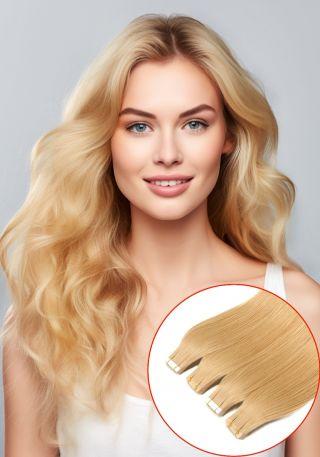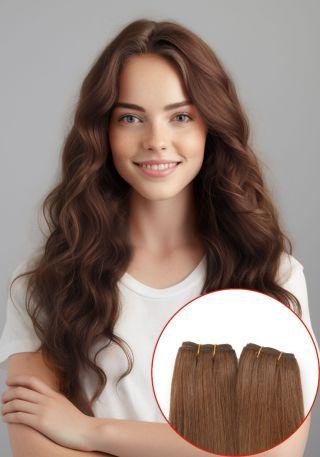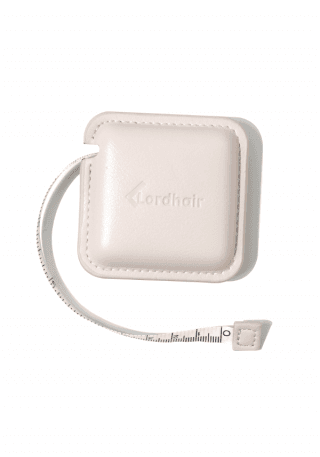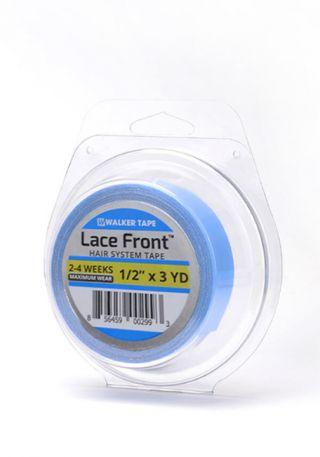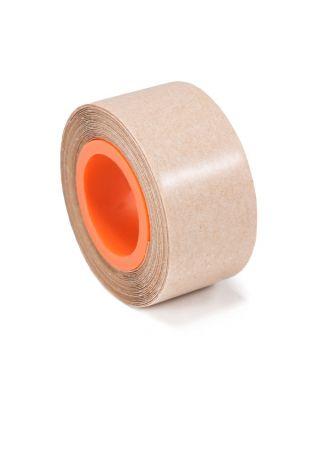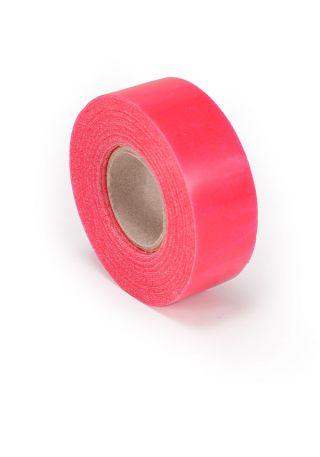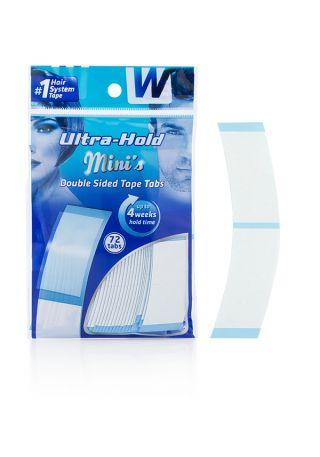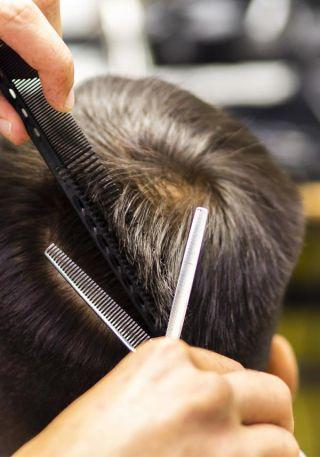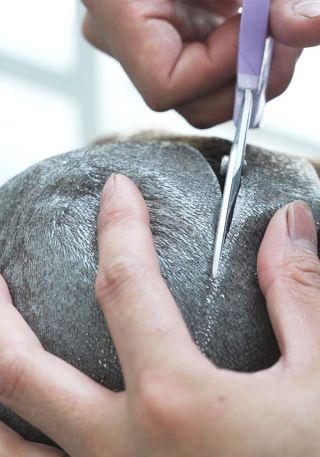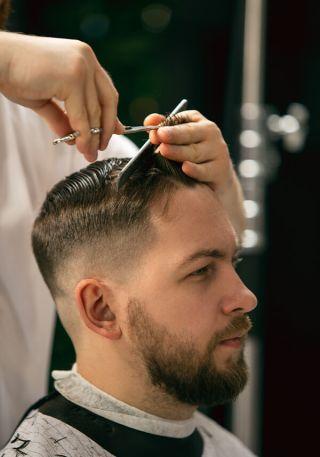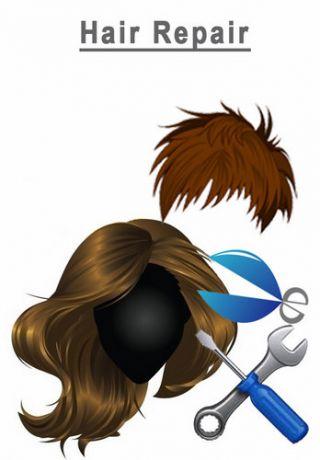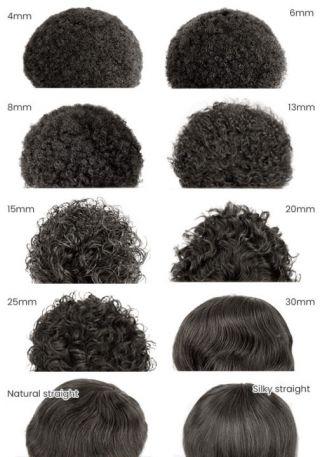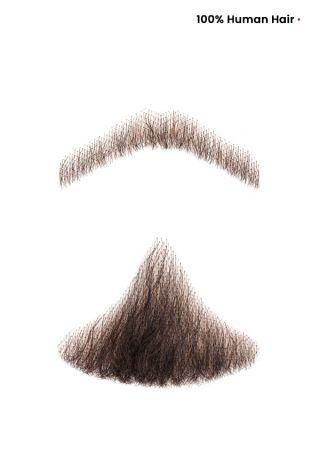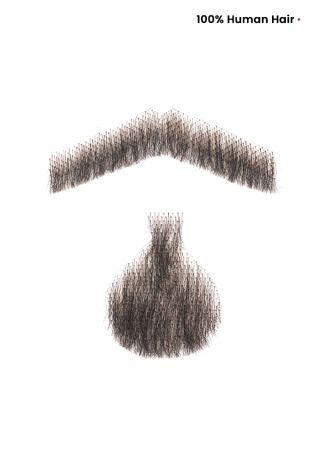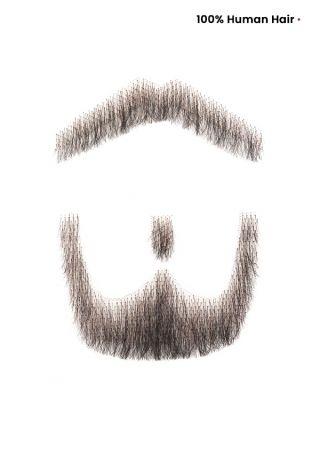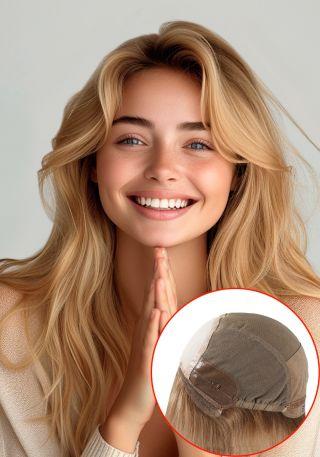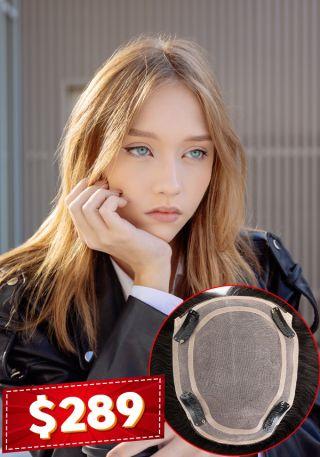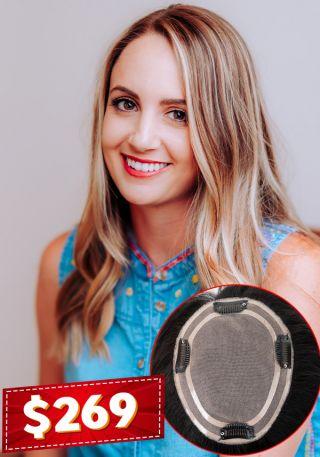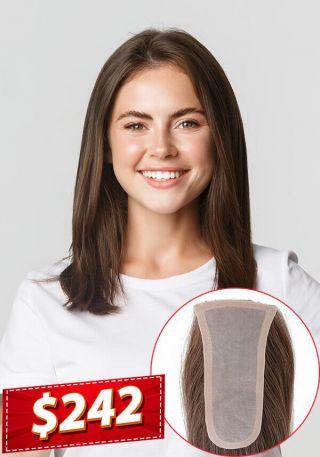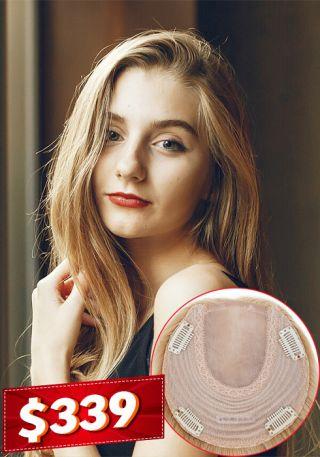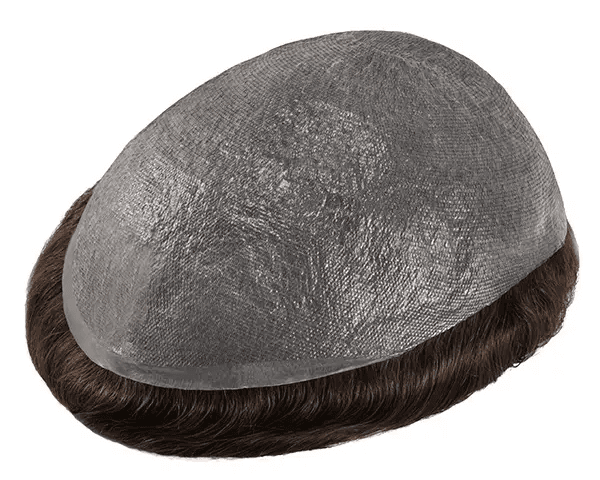Podcast Episode #2: Hair Loss Denial and Discovering Hair Systems | Interview with Russell
- Written by Lisa Sawter
- Apr 11, 2022
- |
- 22 min read
 Listen to the full text
Listen to the full text
In this episode we chat with Russell. Russell is an influencer and has worn hair systems for several years. We talk about the initial denial when experiencing hair loss, the trials and tribulations of medication and topic (powder) as a solution, and finally discovering the power of hair systems.
Russell shares his tips with listeners on how to extend the life of a hair system and how to start with hair systems for begginers.
We hope you enjoy this episode, if you wear hair systems and would like to feature on the podcast, get in touch with us today at support@lordhair.com.
If you want to start wearing hair systems, we have a friendly 1-1 customer service to help you pick out the right peice for you, and help you along every step of your hair system journey!
hairsystems #menstoupees #hairreplacement #manweave #hairlossformen #lordhair
Full Transcript:
Episode 2 Hair Loss Denial Medicine Side Effects Finding Hair Systems
Hair to stay, the podcast all about hair loss, hair systems, and being your best self. Brought to you by Lordhair, a worldwide Hair System retailer.
Okay, hi, everybody. Welcome back to the Lordhair Podcast. Today I have a very special guest. I have Russell, who is a social media influencer in the LGBTQ tea world who talks about hair systems and a life with hair loss. Welcome, Russell. It's nice to be speaking with you today.
How are you?
I'm great. Thank you. And thanks for introducing me. It's such a lovely platform. Thank you.
Okay, thanks. So I just thought I'd start maybe with kind of just introducing yourself and your kind of hair loss background.
Yeah, sure. And thanks for inviting me, because, you know, I would have said, maybe a decade ago, I would never be talking about this. Denial is one of the things that I would have said that it started with so. So I'm happy to talk very openly about this now. But I remember going to actually, I remember going to Japan, in my late 20s. And I'm in my 40s now. And my friend was taking a photo of pagoda. And I was walking towards the pagoda. I was walking towards the pagoda. And so she took the photo from behind me. And so when I saw the photo, I saw like a little ball, like little spots on my crown. And it wasn't even. It wasn't even that much to be honest. But I just kept on focusing on it, focusing on it. And I thought that's, I'm gonna lose my hair. I just thought I'm gonna lose my hair. And then ever since then, I couldn't look at that photo. Because again, it's that denial, it was the whole, no, that's not me. Anyway, fast forward. Over the years, of course, I was showering. And I could see like long strands of here, very healthy hair falling in, in the bath. And again, it was quickly like, oh, let's wash it away. It's normal, again, that denial. And then I remember, again, still in my 20s the Indian pharmaceutical companies were booming. And I remember I found this company that was offering tablets to help us stop your hair loss. And so I remember ordering these tablets, and they arrived so fast. And I started to take them immediately. And that's when my problems started. Unfortunately, I was putting in chemicals, I was putting chemicals in my body, which then started to have an impact and loads of side effects, loads. So that was kind of my introduction into hair loss.
So you did you did you know that you'd have side effects with with medication?
Not at all. Because, again, it's like, you know what it is? It's it's like the you're blind to that. And the only example that I can give is I'm a nonsmoker. But, you know, in, in, in parts of the world, when you buy cigarettes, the packets have like these awful photographs. And those photographs are designed for people to ignore. And so because the smoker is still smoking. So it's the same thing for hair loss, at least for me. It's side effects where I'll well, I'll just ignore that because it's almost that desperation of I want this to work.
Yeah, I was gonna say it seems like a kind of, sort of, like desperation that you want to do something so badly about about the hair loss and I guess you hadn't looked into the kind of different kinds of solutions or you just sort of stumbled upon medication as an option. And that was your first thing that you thought, Oh, finally, there's something that I can do to fix this. Or did you think that oh, there's also other options? Or was it something that you had you had thought about other options before? Or did you just not even know what you could do? Did you feel I have this hair loss problem, there's nothing, nothing I could ever do about it until you saw that that might have been a solution. And then put all your hopes...
Exactly. So that that was that was the solution. Because it was like directly that was going through blood streams, etc. So that was like, that's going to work. Yeah. And then and then of course, it didn't, because the side effects that I was getting as a man was absolutely atrocious. And I think I'll come to that later on in the podcast, because the medication comes back again, because what happened is I stopped it. And then I then started to investigate it a bit more. I went to look at products, I went to a hair clinic in London at the time. Products meaning I was going to places like Boots and Superdrug and and if you think about is a $4 shampoo really going to stop my hair loss? Absolutely not. But again, a desperation. And so I had this really nice collection of shampoos. I then found minoxidil. And so I was using minoxidil on my scalp. And I don't know if it slowed it down or not, I really, up to today I don't I don't know. I don't know if it did. And I don't think I'd be in the situation that I'm in today. So what happened is during those years, I was slowly starting to lose strands. But it was manageable because I was able to disguise my hair and having ethnic hair as well. It was very easy for me to style it and to cover it.
So what were some of the ways that you sort of styled it and covered it before, before you started using hair systems when you were trying to cover your your hair loss?
So this is when I started going into my 30s now, and let's let's remember, this is like years later now, and I'm still thinking about this. And I lived in America for many years, and it was in America where my hair then started to rapidly lose, rapidly started to fall out, or at least thinning. And so America being America, there's wonderful doctors there that want to help you etc. And I went to one of the top hair clinics in Beverly Hills. And of course it was great, it was nice and all these things and they looked at my scalp and they said they I don't need a hair transplant. And when I heard that I felt so relieved. I really felt comforted. But what they did was they said that what we would recommend is finasteride which was the same pill that I took in my 20s from India, right. And so I trusted them. I took finasteride for a good few years. And I felt like that's when so many complications began again but on a different level. If you if you read up finasteride on the side effects that somebody will get taking these pills, I got all of them. And I thought it was me I thought it was just, I thought it was my, I thought it wasn't to do with the pill that I was taking, is to do with my lifestyle. Maybe I wasn't going down the right path and maybe I should move back to London or you know, was it the stress of living in America or it wasn't when I looked back now it was it was finasteride and I'll give you some of the side effects that I that I got that I never knew. Because they don't write this on the packet.
So the clinic when you went to them when you started getting these side effects and thought oh, maybe it's due to that did you go back to them and say look, I've got these side effects. If I don't know if it's to do with, with this, what I'm taking or what happened there? Did they have any advice for you?
I did go back and they assessed me. And they cleared me. Because they can't see my psyche. They can't they can't they can't see what's going on in my brain. They can only see what's what's going on visually. Right? Just do you see what I mean. Yeah, so they're, they're a hair clinic. They're not. They're not a psychologist. So the complaint that I had first was, my, my chest, my breasts were were slightly growing. What's the right word for that anyway, they were growing. And there's a medical term for this, I can't remember the term. But they were, they were getting enlarged. And I was worried about that. And that's what made me go into the clinic. So the doctor assessed it and said that it was fine that I was just putting on a bit of weight. But I'm able to do so because I'm very tall and it will be proportionate. And but it's not to do with the pill. I said, Okay. So then a few months later, I then start to notice that I was having weight gain around my waist. And I was very healthy. And I was eating well. I was exercising. So why am I putting on weight? It didn't make sense. Or even when I went to a different doctor. And they they just looked and said, Yeah, it's it's just weight gain.
By that time, had you kind of linked linked it to what you were taking? Or were you still...
Not at all. Not at all.
So when had you sort of finally kind of thought or maybe it's time just to stop this is medicine and look into some other, something else.
When I started to win when it was about the second of I took finasteride for about a good two and a half years to three years. And it was just at the end of the third year that I thought these side effects I'd not that not dissipates in the dependent, they're not going away. I think that that's what I realise that this is, this is something that I'm putting in my body. And so I stopped to finasteride. But as I stopped finasteride, that's when I had to have a backup plan. Because finasteride does work. It works in that in in the terms of it will keep the hair that you currently have. But it won't help you grow extra hair it will just keep your hair from shedding. So that's when I started to use... ummm. So when I stopped finasteride, of course, when you stop after a few months, your body then luckily, well my body went back to kind of reset mode. But it also meant that the hair was going to shed. So I started to use things like concealer like Topic it was called which which worked, it worked for many years for me. And it was very effective. The only problem was is that you get worried when if you're out in the rain or you can't go swimming or you can't allow someone to touch your hair or because they'll get black powder on their fingers. You have to wash it out before you go to bed, things like that. So it worked for a good few years. And that's what I was using up until I found hair systems.
So how did you kind of stumble across her systems I guess.
Again, out of desperation out of desperation I was looking at. So let's let's go back to that Japan trip. And now we're talking about a good what 20 years could take me up to the point where I am today. That's how long denial can take just to see what it means like it's such a it's such an emotional journey. because you don't want to face it, and I tell you what if I found here systems back then I would have saved so much stress, so many anxiety, etc, etc. And how I stumbled upon his systems was, I went to, it was like a convention. And somebody was talking about his systems, they're generally mean like, that's like for Benny Hill shows or That's comedy. That's, that's what we associate comedy where there's men wearing wigs, it looks fake. And I don't want to do that. And they're trying to snazz it up with calling it hair system. So I kind of ignored all of that. And carried on using concealer. But then my hair was getting so thin, that the concealer wasn't going to cover it with the coverage wasn't going to be there anymore. And so as one as I started to look up hair transplants. And I did that research for a good few years. And I thought, I don't know if I want to do this. And that's why I kept on investigating it. But as I was looking at hair transplant solutions, that's when I would see Lordhair pop up in the background. And I saw the videos. And I thought, well, this is just a wig though. And so I can see at the corner of my eye, but again, the denial, "I don't want to wear a wig". And then it was about three years ago now that I went into a hair clinic in London that uses Lordhair systems. And that's when I walked in. And I just thought let me just go for a consultation and see what happens. And I went into for a consultation. And then like three hours later, I walked out with the hair system on my head.
So they'd had some in stock and you could kind of do it there and then get it all measured up.
Because yeah, because the thing is a lot of men. Well, let me own this. Let me talk about myself. So if you can imagine a mohawk hairstyle.
Yeah, yeah.
So that's, that's, that's what I had my hair loss was the kind of Mohawk shape the Mohawk design. So that's all I needed. I had great hair, everywhere else, it was just like this landing strip. And so therefore, I could just use the stock system that they had. And what they did they cut it, they designed it. And so it was just a partial piece. Now that made me feel a bit more okay, well, I've kind of got just a small piece of this system on my head. It wasn't a full system. And it didn't even feel like a wig. It didn't even look like a wig.
So when you put the this hair system on your head, did you feel kind of an apprehension about having to shave an area of your of your head? Or was the area where it was put just wear your hair was kind of really so non existent that shaving it didn't make too much difference? Or did you feel oh, I might have to shave my head to put on this hair system. I'm a bit worried about doing that at first.
You know what? That's so funny. Actually, I forgot about that. Yes, I'll be honest, even that small parts that had the little strips coming out. I didn't want them to shave it. They're like, Oh, you know, we are going to have to go a bit more wider. And that's good hair. But what we're forgetting is, your good hair is always going to grow regardless of whether you've got a hat on a bandana, a hair system. A hair system doesn't stop your hair from growing underneath. And that's what I'm realizing now. So yeah, I was a bit apprehensive I was and I didn't want to look. I didn't want to look in the mirror and I didn't because I didn't want to see more bald, but then I thought, now I'm thinking the results is much more worth it. It's just worth it. And you have to kind of you'll go over that hurdle of, okay, they're gonna shave my hair, but just like how a man might shave his face. Is it doesn't stop growing, you'll get a stubble. So you just have to get over that hurdle. And once you over that hurdle, it just becomes so much easier.
So when you when they have kind of finished your hair, and you've seen the whole result of how it looked, and then cut it into the style that you wanted, what was going through your head? Or what were you thinking when you'd seen the end result when you'd looked in the mirror?
I mean, I'm smiling, because I remember the very day and I, it just looked so real, it looks, so it just looked like my hair. And one of the worrying things, though, is I kept on, when I walked out, I kept on touching it. Because I felt I couldn't feel anything there. And I'm thinking has it fallen off? Or, you know, because it was so.., I just, you can't feel it there. It's not heavy. It's not just it just feels like there's nothing there.
Did it ever feel kind of itchy to you?
Not at all? No, not at all. It wasn't, it wasn't tight it was the only way that I can describe it is that if you put on when you put on a baseball cap, you can feel the cap on your head. It's not like that, when you put gel on your hair. You can't feel that weight of the gel. That's how I would describe it. You can't feel that.
So when you when you came out of the of the salon, did you and you're sort of walking along the street? Did you think people people are gonna know that I'm wearing a hair system? Or did you kind of have that worry at all after you got it fitted?
Not at all, because it was so I kept on looking, you know, passing the shots and looking in the reflection. Because I was actually so happy. I was so happy with the result. And I felt, you know, there's I couldn't not feel it was difficult for me to feel worried about what others thought. Because I was I felt so confident. I felt so I was just so happy. I was so happy with the results. Because it looks so natural, that I wasn't even worried that somebody was going to look at me and think there's something different about him. And I remember when I arrived at my destination I went to somebody that I know. And I said I went for a hair cut this morning. And she said oh yeah, it looks nice. I felt confident to even tell her that actually I've got this system on and she looks at the and you know, tried to investigate it and feeling it. And I just, I just even felt like I could do that it allowed me to talk about and that was the first time that I had talked to somebody about my hair loss is after I had the system on.
What about when you kind of spoke to your family? Did you find that daunting at all?
I did a you know, it was only after three years. Basically it was last end of last year that I that I told them and I'm just trying to think about how and I still don't know why I didn't want to tell them but after what has happened with pandemic excetera I think a lot of people will a lot of people did. Well, let me again own this. I looked at my own mental health and I thought if I can talk about this openly and my family you know, my family are very jokey and you know and I didn't want to face that. And because I was enjoying the feelings I was getting from the hair system. I didn't want anyone to affect that. And the only people that could affect it is my very close family by probably making fun of it. But I actually talked about it quite openly. And I was surprised with the feedback that I was receiving because, again, it was about my mental health and how much my mental health in was my head, how much my hair loss impacted on my mental health. And so therefore, I, of course, they were not going to make fun of that. They wouldn't, they wouldn't dare. And in fact, they were very inquisitive of how, how does it look so real? How do they put it on and they were interested about it. So in the scheme of things, it's not a big deal. Like it's not a hair system and telling somebody about a hair system. It's no different to saying to somebody, oh, I just got my hair cut, or I just had a facial or I just had my nails done or whatever, it's no big deal. So what if men want to amplify or enhance their look, we do it all the time, when we're getting dressed. We're putting clothes on and we're walking out of the house, therefore, we're enhancing the way that we look. Right?
Do you feel you sort of got more and more comfortable with it as as you went along. And you were more and more comfortable when when people started to find out as well? That even now, now people know, and you wouldn't care kind of thing? Sort of whoever knows, because you've already kind of got used to it? And you own the fact that you wear a hair system, and what's the big deal kind of thing? What's your mentality with what other people think about you nowadays?
So nowadays, I, if somebody says, the thing is, nobody will actually really talk about it, because it doesn't look like, it doesn't look abnormal, that's the thing. So it doesn't actually come up in conversations, no one's going to stare at my hair and think, Oh, let me just ask him about this, because I caught my hair loss at a time where I was able to weave in my own hair into the hair system. So one of my biggest advice is if you can get a hair system as early as possible in, in the hair loss process, then do that, because then you're able to use the good hair to blend in, into the hair system. But also, if, if it, if you don't have the hair, then that's also okay as well. But for me, it was that gradual process of I'm able to it made me feel a bit more comforting that I can actually use some of my hair into the system as well. But so therefore, no one's no one asks me if anything it will be made that will bring it up. If I see somebody that has hair loss, or they that they bring it up and saying, oh, you know, I might shave my hair or I'm thinking of a hair transplant. That's when I would say Oh, but you know, there are other options, don't go to that whole invasive surgery for a look that you might never get. So I don't really bring it up in conversations, of course, if somebody asks me, and they know me, then of course, I will definitely be open about it. If somebody you know, what does happen a lot is few, you know, a few comments would be like, oh, you know, you've got great hair, good, whatever, whatever. And then that's when I would own it and say actually, this part here is not my hair. Like why and then that's how it would come up. And that's how confident I am. In saying that I you know this is a system that I'm wearing, because let's not forget, why should it be okay for people like Beyonce and all of these other artists that were hair systems. It's okay for men to wear them as well.



